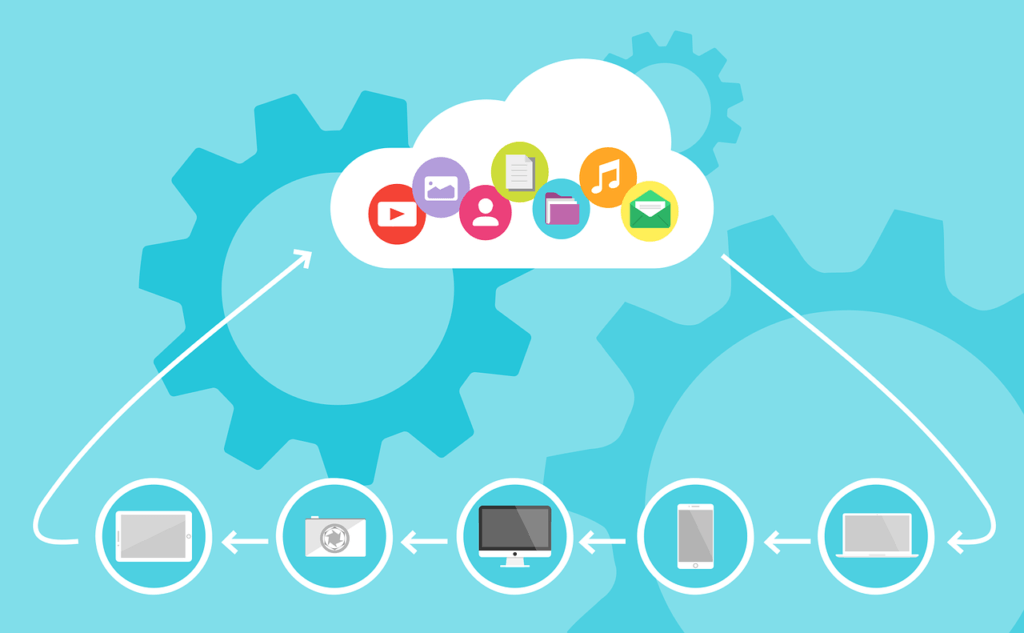It’s something that is becoming more common, with migrations to the cloud now attracting businesses both large and small.
As we all know, there are plenty of reasons for this. The benefits are well-documented, but at the same time, it’s worth remembering that this is a migration that isn’t without its challenges. After all, this is probably going to be the biggest migration that your IT team has performed over recent years.
This is going to be the focus of today’s post and we will now take a look at five of the main challenges that businesses must keep an eye on if they are considering a project of this ilk.
It can be disruptive
Like a lot of the points, we are going to talk about, this first one is a possibility. In other words, if you rely on a reputable provider like G-cloud 11, you probably won’t experience this issue.
However, let’s not try and hide the fact that cloud migrations (or any migration for that matter) can be disruptive.
We’re not going to suggest how detrimental downtime can be to your revenue; for some of you, it could cost you six figures every minute your site is down. This is one of the reasons why a lot of companies will look to gradually migrate systems, rather than do everything at once. It’s also a reason why going with a reputable provider is so important for a lot of companies – downtime can destroy their entire years’ accounts in some cases.
How will you cope with a skills gap?
With the cloud still being a relatively new technology, it won’t come as a surprise to read that there aren’t a huge number of professionals who are completely familiar with it.
This will mainly affect your internal IT team. Contrary to popular belief, they will still have a huge part to play in your IT infrastructure projects – because they know your applications better than anyone else.
As such, you need to establish if they hold enough knowledge of cloud platforms before you make a move. If they don’t, you will need to boost your team (more on that later) or consider delaying your project until your team is ready to cope with this change.
Will it be compliant?
As we all know, we’re in the era of compliance. There is a whole host of new legislation which is making it more difficult for companies than ever before to satisfy compliance protocols.
As the cloud handles vast amounts of data, this is obviously crucial. When you make this move, you need to make sure that data is being moved securely, and any data that is now going to be stored on the cloud is also going to be done so in a secure manner.
Even if you have opted to choose a world-renowned provider, a degree of caution must be exercised when it comes to this issue. After all, in the vast majority of cases, the onus will fall on you to protect your company’s security, and you need to make sure that every compliance element is checked before you proceed.
If you need a reminder of the importance of this, you only have to take a look at some of the huge fines companies have faced after losing customer data or seeing it reach the wrong hands. There’s both a reputational and financial impact here – both of which can be avoided if you plan shrewdly prior to your migration.
Suggested:
What is Cloud computing in simple words?
Will it be cost-efficient?
The cloud has grabbed the headlines because of its ability to save companies money. Unfortunately, it only works as hard as the time you put in.
In other words, you really need to assess how many resources you need. Some businesses will overestimate this, meaning that the cloud benefits are immediately wiped out. Let’s not forget that you can scale up with cloud systems pretty easily, so it’s better to start small rather than taking on too much costly infrastructure from the start.
And then, there are the initial costs. In truth, this is something that can open up a whole can of worms and will vary drastically depending on the type of organization you are part of. For example, in some cases, this initial cost might cover rewriting entire applications that are just not going to be compatible with a different platform.
Or, as we have already covered in a different section, it might involve recruiting new staff who are comfortable both on your existing platform, and the one that you are about to move to. Some companies will attempt to mitigate this cost by re-training existing employees but again, there is another cost involved in this.
As such, the cost of the cloud can most certainly be classed as a challenge and unfortunately, there’s no black and white answer that is going to be applicable to all companies.
It can be difficult to convince others to jump on board
Finally, following on from all of the above, it will not come as a surprise to read that it can become very difficult to convince others that a cloud-based solution is correct for your business. As we have just covered, it’s not simply a case of reaping immense cost savings. Granted, this is something that can happen in the long-term, but there is a lot of groundwork that happens before then meaning that a major migration project can have a long payback period.
This company resistance probably isn’t just going to come from senior management who are footing the bill, either. In some cases, this resistance can come from a lot closer to home; in other words, it can come from your IT department. This can be something of a deal-breaker, particularly as it is going to be this team who effectively holds all of the cards in how your cloud migration is going to pan out.
As we all know, change is something that tends to be frowned upon in corporate structures. It can be difficult to initiate, with a lot of people used to familiar processes.
This is where you really need to manage the transition carefully. After all, there is a common misconception within cloud systems that you no longer need your internal team once the migration is complete. As we all know, this isn’t the case in the slightest, but this is something that you will need to educate existing staff on if you are to get people buying into the fact you are looking to change to a cloud solution.
A closing summary on cloud migration challenges
As you can probably see, cloud migration isn’t always as straightforward as the media might sometimes suggest. There are of course huge advantages in a lot of cases by making the switch to the cloud, but to reap them you have to plan accordingly.
Quite often, this means pledging your faith with an established provider of cloud services. Even then, there is a lot of other work to complete and as we have already mulled over, there are also umpteen challenges that you need to navigate in order to make it a successful migration.






 Should You Learn Code For SEO?
Should You Learn Code For SEO?
Thanks for sharing information!!! Here has explaining of 5 challenges migration project. Really, it´s very helpful tips for you! So, can you read this article? Thank You!!!